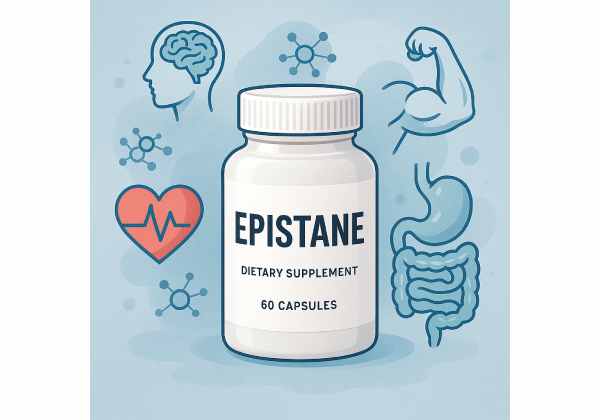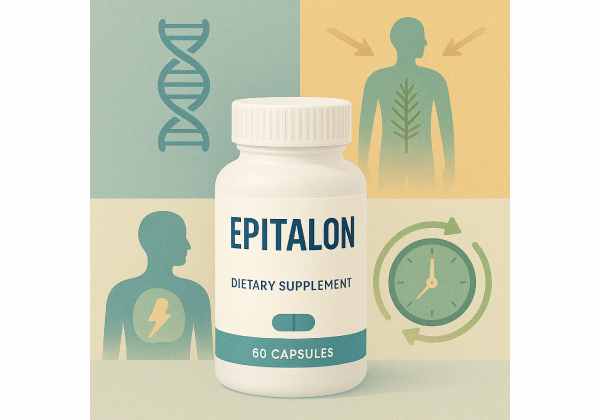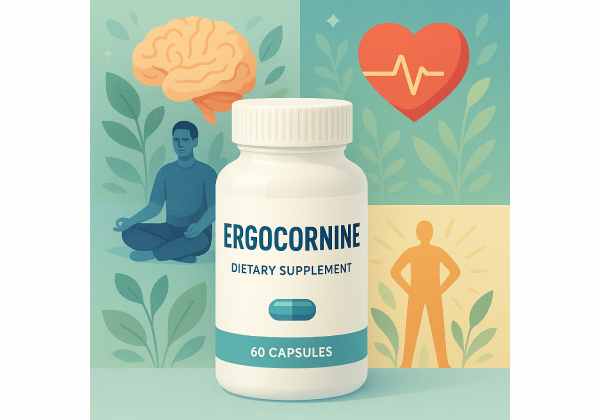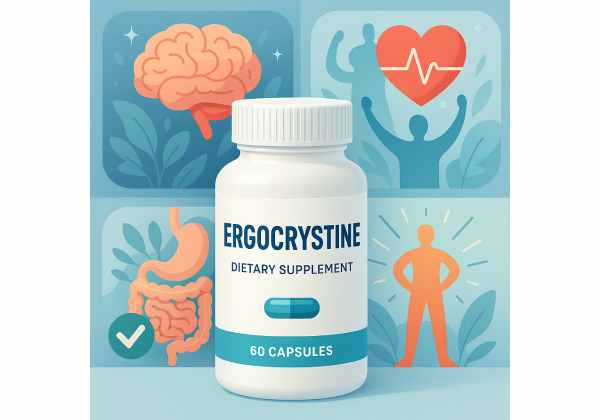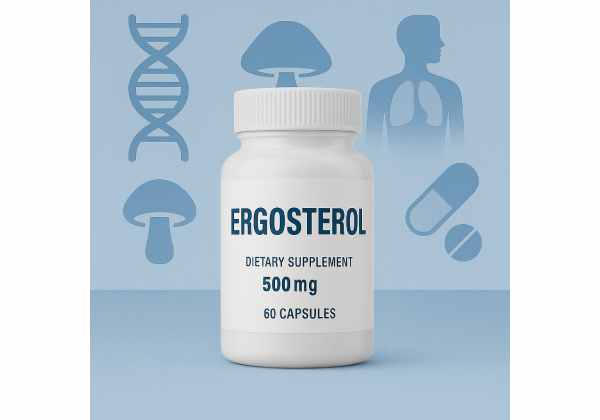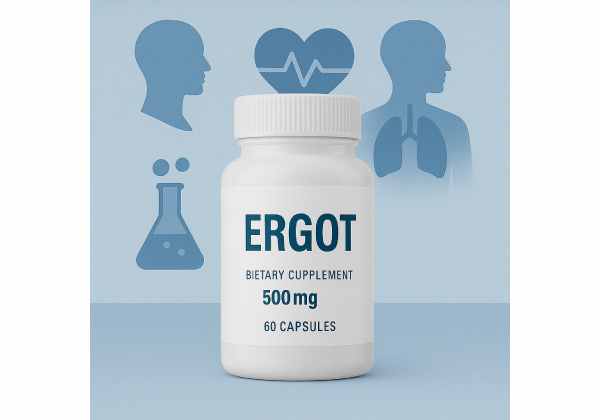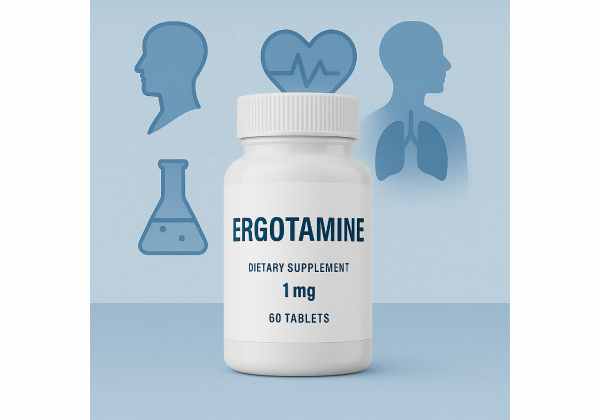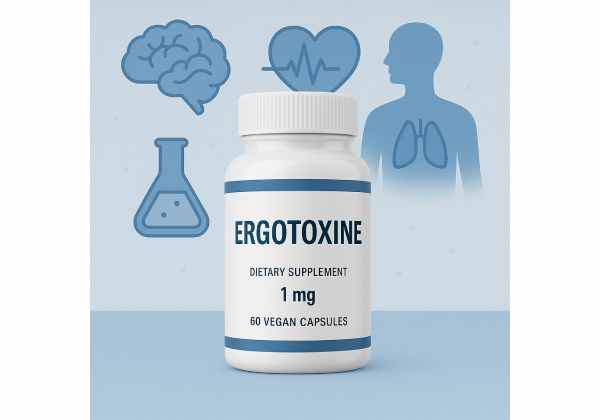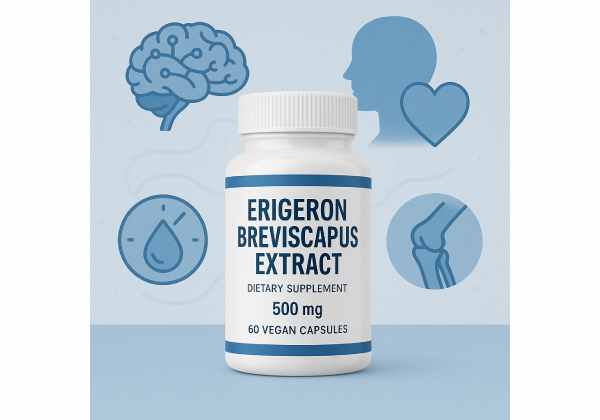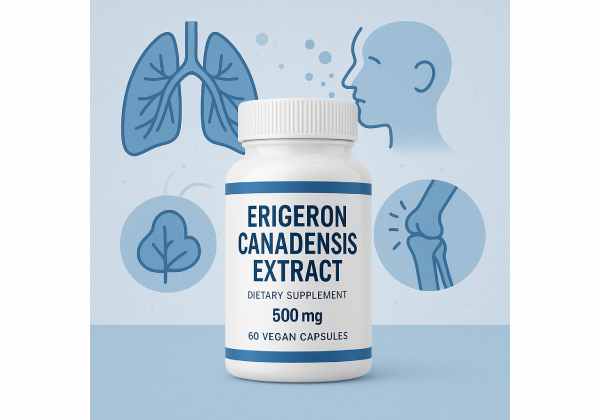Epistane for Bodybuilding: Results, Dosage, Cycle Support, and Dangers
Epistane (chemical name: 2α,3α-epithio-17α-methyl-5α-androstan-17β-ol; also called methylepitiostanol) is a synthetic oral anabolic–androgenic steroid (AAS) that was marketed for years as a “prohormone” or “dry” bulking agent. Despite supplement-style packaging, Epistane is a 17-alpha-alkylated steroid—an oral modification linked to liver stress—and not a benign muscle builder. In lab models, Epistane behaves like other AAS: it activates androgen receptors, shifts lipid...
Epitalon: Top Anti-Aging Benefits, How It Works, Proper Dosage, and Safety
Epitalon (also called Epithalon) is a lab-made tetrapeptide—Ala-Glu-Asp-Gly—originally modeled on compounds isolated from the pineal gland. In early laboratory and animal research, Epitalon has been reported to influence telomerase (the enzyme that helps maintain telomeres), oxidative stress responses, and circadian-related hormones. These signals have fueled interest in healthy aging, sleep biology, and tissue repair. Yet the human evidence remains...
Equisetum arvense Supplement: Top Health Benefits, How It Works, and Proper Dosage
Equisetum arvense—better known as horsetail—is a living fossil with a long history in traditional European medicine. Today, it is most often used to support urinary tract flushing (a gentle, short-term diuretic effect), with additional interest in wound care and connective-tissue support because of its high silica content. Modern studies are still limited, but small clinical trials suggest horsetail can...
Ergocalciferol for Bone Health and Immunity: Benefits, Risks, and How to Use
Ergocalciferol—also called vitamin D2—is a plant-derived form of vitamin D used to prevent and treat deficiency. Your body converts both D2 (from fortified foods, UV-exposed mushrooms, and supplements) and D3 (from sunlight on skin, animal foods, and supplements) into 25-hydroxyvitamin D, the blood marker doctors measure. Adequate vitamin D supports calcium balance, bone mineralization, muscle function, and fall prevention...
Ergocornine for Hormonal and Neurological Health: Benefits, Warnings, and Dosage Guide
Ergocornine is one of the principal ergot alkaloids—bioactive compounds produced by Claviceps purpurea, the fungus that forms dark “ergot” sclerotia on rye and other cereals. Unlike vitamins or herbal extracts, ergocornine is not a consumer supplement; it is a potent pharmacologic molecule with vasoconstrictive and neuroendocrine effects. For most people, the only realistic “exposure” is dietary—trace amounts that may...
Ergocrystine for Migraine and Hormonal Health: Uses, Safety, and Dosage Insights
Ergocrystine—more accurately spelled ergocristine—is an ergot alkaloid formed by Claviceps fungi that colonize cereal grains (especially rye) and some pasture grasses. It is not a dietary supplement; rather, it’s one of a group of mycotoxins that regulators monitor closely in food and feed. Because ergot alkaloids affect serotonin, dopamine, and adrenergic receptors, they can strongly constrict blood vessels and...
Ergosterol: Top Health Benefits, How It Works, Dosage, and Potential Risks
Ergosterol is the primary sterol in fungi and some protozoa—the structural counterpart to cholesterol in animals. It stabilizes fungal cell membranes and, when exposed to ultraviolet light, converts to vitamin D2 (ergocalciferol). In practical terms, that means mushrooms and yeast-rich foods can become valuable dietary vitamin D sources after UV exposure, while ergosterol itself also serves as a laboratory...
Ergot: A Deep Dive Into Its Health Effects, Risks, and Dosage Methods
Ergot is the common name for a group of fungi—most notably Claviceps purpurea—that infect cereals such as rye and produce potent compounds called ergot alkaloids. These molecules shaped centuries of medicine: they inspired modern vasoconstrictive migraine drugs and uterotonic agents used in childbirth emergencies. Yet ergot itself is not a routine “supplement,” and whole-plant products are neither standardized nor...
Ergotamine: Migraine Relief, Safe Usage, Dosage, and Side Effects Explained
Ergotamine is a legacy migraine-specific medicine from the ergot alkaloid family. Although newer options (like triptans, gepants, and ditans) now dominate first-line care, ergotamine still has a niche for select adults when taken at the very start of an attack. It acts on serotonin, adrenergic, and dopamine receptors to constrict dilated cranial blood vessels and dampen pain signaling. In...
Ergothioneine: Anti-Aging Properties, Health Uses, and Side Effects
Ergothioneine is a rare dietary amino acid concentrated in mushrooms and made by certain fungi and bacteria. Humans cannot synthesize it, but we absorb it efficiently through a dedicated transporter (SLC22A4), and the body selectively stores it in tissues exposed to oxidative stress—like red blood cells, the eye, and immune cells. Interest in ergothioneine has surged as studies link...
Ergotoxine Supplement Guide: Benefits, Mechanisms, and Safe Use Tips
Ergotoxine is a historical name for a potent mixture of ergot alkaloids made by the fungus that infects rye and other grasses. These compounds—most notably ergocristine, ergocryptine, and ergocornine—act on serotonin, dopamine, and adrenergic receptors and can strongly constrict blood vessels. While derivatives of ergot alkaloids are used in prescription medicines for conditions like migraine, “ergotoxine” itself is not...
Erigeron annuus Extract: Health Benefits, Herbal Uses, and How to Take It Safely
Erigeron annuus—often called annual fleabane or daisy fleabane—is a hardy Asteraceae plant found across North America and much of Eurasia. Extracts made from its aerial parts contain phenolic acids (such as chlorogenic and caffeic acids) and flavonoids (including luteolin derivatives) that are being studied for metabolic, skin, and anti-inflammatory support. Preclinical research suggests actions on cellular stress pathways, inflammation,...
Erigeron breviscapus Herb: Vascular Health, Neuroprotection, and How to Use It
Erigeron breviscapus is a daisy-family herb native to southwest China and long used in traditional formulas for brain and heart health. Modern extracts—often standardized to scutellarin, a flavonoid glucuronide—are sold as oral capsules and, in hospitals in China, given by intravenous infusion as “breviscapine” preparations. Research explores potential benefits for ischemic stroke recovery, microcirculation, and neuroprotection, with additional laboratory...
Erigeron canadensis Extract Benefits: Anti-Inflammatory, Antibacterial Properties, and More
Canadian fleabane (Erigeron canadensis, also known as Conyza canadensis) is a hardy North American herb long used in folk medicine for skin wounds, digestive upset, and as an astringent. Modern lab research has renewed interest in its extracts and essential oil for anti-inflammatory, antioxidant, and antimicrobial properties. Phytochemical analyses show a spectrum of flavonoids (such as catechin and quercetin...
Eriobotrya japonica Leaf: Natural Benefits, Dosage, and How to Use It Safely
Eriobotrya japonica—better known as loquat—is a fruiting tree whose leaves have been used for centuries in East Asian herbal traditions for coughs, throat comfort, and skin health. Modern extracts concentrate bioactive triterpene acids (notably ursolic and oleanolic acids), flavonoids, and procyanidins that show anti-inflammatory, antioxidant, and immunomodulatory actions in laboratory and early human studies. Interest has grown around potential...
Eriocitrin Explained: Health Benefits, How It Works, and Safety Tips
Eriocitrin is a lemon-derived flavanone glycoside best known for its role in supporting healthy blood sugar regulation and tempering low-grade inflammation. In human trials, standardized lemon flavonoid formulas rich in eriocitrin have improved fasting glucose and boosted the incretin hormone GLP-1—a signal that helps the body release insulin after meals. Early work also suggests benefits to the gut microbiome...

